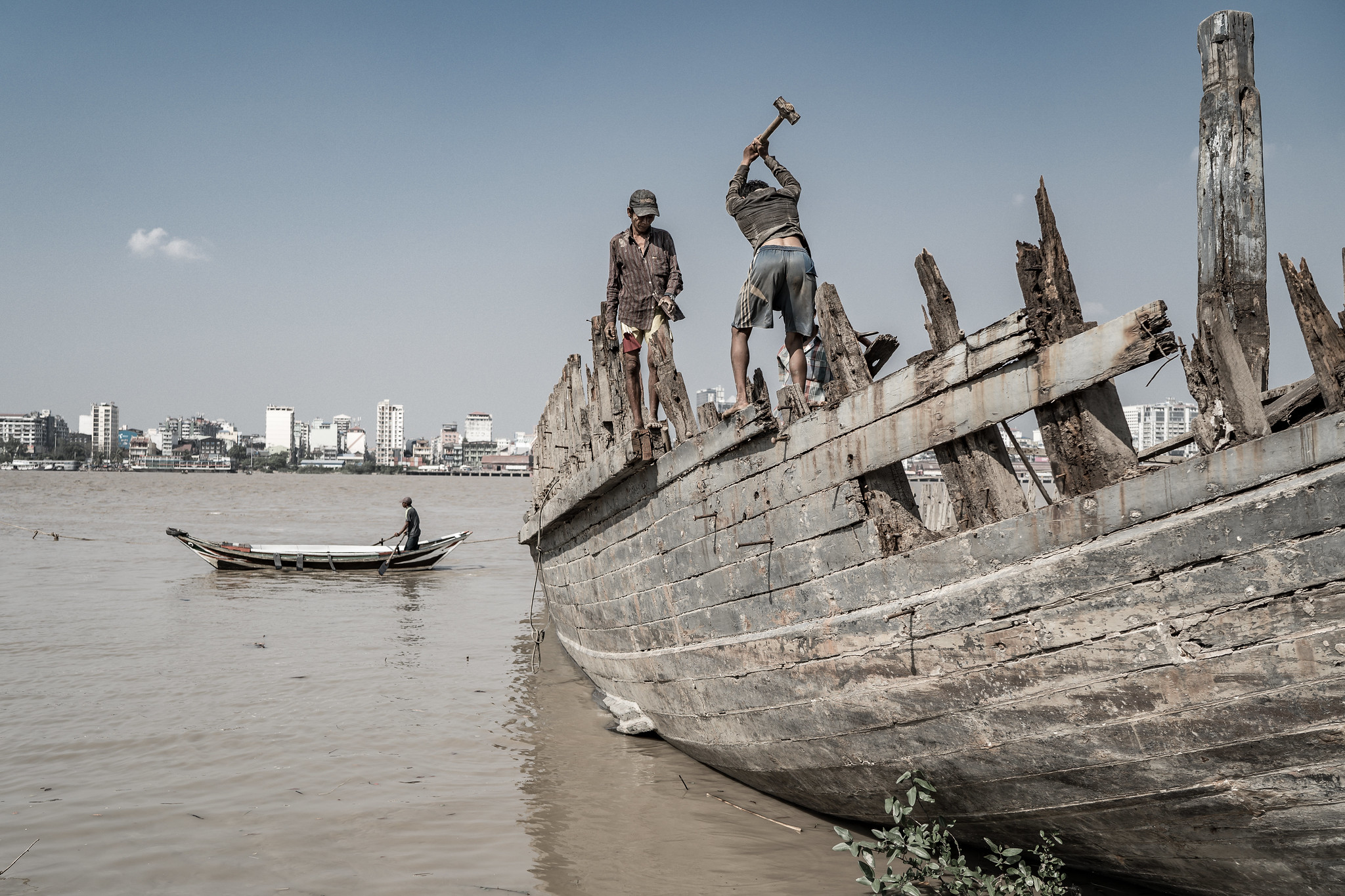I woke up this morning, as I do every morning, to my radio gradually increasing in volume in such a way that for a few seconds I'm literally dreaming about whatever news NPR sees fit to broadcast over the airwaves. Of late, these few seconds have been depressing: Trump, Brexit, bombings, unrest somewhere or another.
Today, 'Earth Day', was sadly no different. I found myself staring at the cracked paint on our ceiling listening to the fact that China's more stringent requirements on recyclable waste mean they've been rejecting some of what we export, citing glass mixed up in bales of paper, insufficient quality of plastics, etc.
This is profoundly worrying to me. Not that China is sending stuff back, but that we're still sending recyclables there in the first place. I know, it’s been going on for years. We are hemorrhaging huge amounts of energy and resources and CO2 sending waste all over the world to 'recycle' it, often finding out later that it has merely been incinerated in cement kilns or worse.
In an attempt to stay sane, I often try and cauterize the part of my brain that thinks about global economics and politics, and concentrate on stuff closer to home, where helping to affect change doesn't seem like such a foreign and unrealistic concept, especially for someone as relatively uncommitted to any single cause as I am.
This more modest playing field has me thinking about the adage I was brought up with, once recycling became a thing. "Reduce, Reuse, Recycle" in that order was what we were always told. I can't help but think either a huge chunk of society never got the "Reduce" and "Re-use" messaging or that they've succumbed to the narrative that “a healthy economy requires constant growth”.
While Cuba’s economic isolation has prevented it from accessing many new products, the resulting behavior is proof that most most of what we own and use has a lifespan well beyond that which we give it.
There's money in recycling, which is why you hear much, much more about it than the more recently popularized 'reusing' (see 'Worn Wear' advertising campaigns by the likes of Patagonia). Those blue bins? You're throwing money into them. Recycling doesn't discourage consumerism, in some cases quite the contrary, it can magically give rise to a clear conscience for people that like to have all the things (a bracket that includes me sometimes). Reducing waste, however, means ultimately less manufacturing, and often less consumption. Reusing certainly means both of these. But that may well mean a shrinking of the economy right? Yes. Yes, it does. It's here I get into the murky depths of socio-economics that has me confused and fighting for breath, questioning this whole hyper-capitalist machine we help maintain.
Myanmar scrapper on the Irrawaddy river finding a new use for the very ancient and very valuable hardwoods, unwittingly saving the felling of a tree that takes 100 years to mature.
Anyway, its Earth Day (it should be Earth Day every day). And in the spirit of progress, there are things even the least motivated of us can do to lessen our negative impact on the world around us, and it revolves around 'mitigation' — an altogether less bitter pill to swallow for most people than the 'stop something altogether' pill, which seems like a pretty unrealistic behavior when you look at the history of humanity.
While working on a project in New Zealand, we were lucky enough to see the old growth rainforests of Fjordland, a significant carbon sink in the Southern Hemisphere.
It was Alex Honnold that first made me aware of Mossy Earth, an organization that concentrates on restoring parts of what is the worlds most effective and dynamic carbon sink; our forests. While industries worldwide continue to clear-cut huge tracts of woodlands, forests, rainforests and jungle to provide us with household products, food or pharmaceuticals, Mossy Earth is doing the opposite.
Mossy Earth provides you tools with which you can calculate your own carbon footprint, and they plant trees on your behalf in some of the world's ecosystems that need this regrowth the most. They don't just leave it at that, they also ensure these trees survive to maturity and hence provide a valuable addition to regional rewilding efforts and one more leafy soldier in the grueling struggle against climate change.
This is, of course, no 'magic bullet'. There is no such thing in our current climate, we've left it way too late for a quick fix that isn't painful and hard-won. But what Mossy Earth is is a valuable tool for those of us that want to do something, and feel a little more engaged with the impact that we have on this planet.
In a day to day that often sees me chewing hungrily through resources - burning up power on the edit screens in front of me, buying expensive carbon-rich camera equipment or climbing gear, or worse still flying here and there to ply my craft - I get a little joy out of my emails that land in my inbox from the team at Mossy Earth. They're usually giving me the GPS coordinates of 'my trees' along with a picture of the ‘leafy soldier‘ planted on my behalf.
So, today, Earth Day, and every day moving forward, let's try to get better. I'm not suggesting we change the course of our lives drastically, I don't believe that's realistic en-mass unfortunately. What am I suggesting then? That we all think a little harder before we buy stuff, that we think a little harder before chucking stuff in that blue bin, and that we all consider helping Mossy Earth turn the brown areas of the map green again. By doing that, we're literally helping to ensure that we, or future generations, have a future on spaceship earth.






